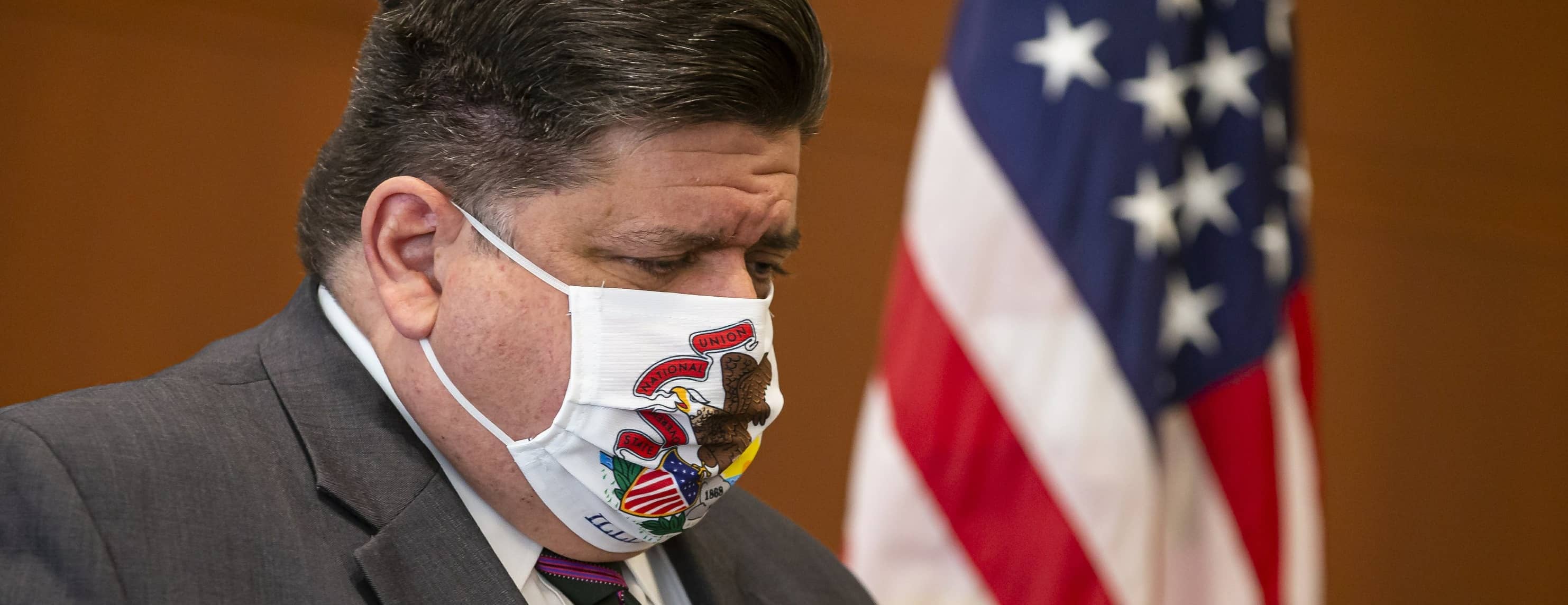
FILE – In this Sept. 21, 2020 file photo, Illinois Governor JB Pritzker lowers his head as Illinois Department of Public Health Director Dr. Ngozi Ezike announces seven additional deaths due to COVID-19 during a press conference in Springfield, Ill. (Justin L. Fowler/The State Journal-Register via AP)
SPRINGFIELD, Ill. (AP) — While battling a recalcitrant coronavirus pandemic, Gov. J.B. Pritzker on Wednesday started laying plans for distributing a safe and effective vaccine.
But other than saying that a vaccine would go first to health care providers, long-term care residents and other vulnerable populations, Pritzker, at his renewed daily COVID-19 briefing, offered few details, saying much depends on what the federal government ultimately approves to prevent the virus.
“The challenge of designing a plan now, of course, is that there’s so much about the vaccines that we don’t know,” Pritizker said in Chicago. “The most defining characteristic of this plan is that it’s adjustable as we go forward and learn more.”
Details such as whether a vaccine will require one or more than one dose to be effective, whether it needs refrigerated storage or could be stored at room temperature, and even how vaccine delivered in large containers will be broken down for specimens to be shipped to small health care facilities will affect the state plan, Pritzker said.
Talk of a coming vaccine offered a bit of good news rarely available from the Democratic governor in the past week, after record-setting days for new infections and tighter restrictions starting in the coming days for parts of the state.
The Illinois Department of Public Health reported 69 new COVID-19-related deaths on Wednesday, the highest single-day total since June 16, among 4,352 new infections, the next-to-highest single-day total.
Deaths now total 9,345 among the 355,217 confirmed cases.
The Federal Food and Drug Administration has suggested that the earliest a vaccine would be available is by year’s end. That simply would mark the start of the rollout process for the states, said Dr. Ngoze Ezike, state health department director.
“Vaccinations, once they arrive, will take many, many months at the minimum to actually get into the arms of the people of Illinois,” Ezike said. “So this will unfold in phases, with initially only a small amount of vaccine available, and as production ramps up more individuals will be able to avail themselves of this countermeasure.”
Health care centers will register to be vaccine providers and order it through the state, Ezike said. The vaccine will not be required, but the health department will publicize its availability and its benefits. According to the federal Centers for Disease Control and Prevention, 80% of the population will need to be vaccinated to establish an acceptable level of “herd immunity” to prevent ongoing widespread illness.
There will be no charge for the vaccine, she said.
